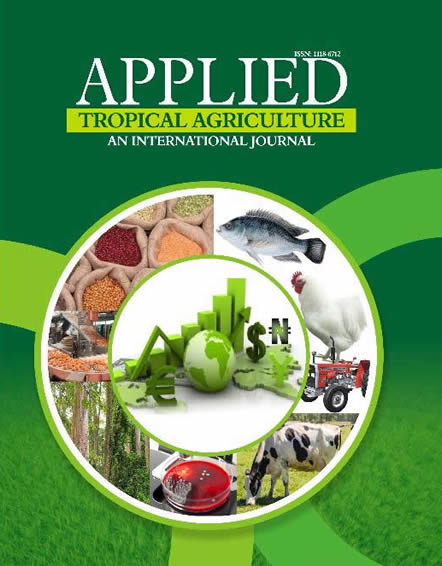The study assessed the factors that influence dietary diversity behaviour of rural households as well as the relationship
between the dietary diversity and food calorie consumption among rural households in Kwara State, Nigeria. 120 rural
households were selected using a three-stage sampling technique. Data were collected using structured questionnaire. The
study adopted random utility model to fit the collected data, which were analysed using household Dietary Diversity Score
[DDS], Analysis of Variance [ANOVA] test and Multinomial Logit Regression [MLR] technique. The result revealed that
with reference to medium dietary diversity category, age, household income, gender and education level were the
socioeconomic factors that are positively significant at p<0.01, p<0.05 and p<0.1 levels to explain the dietary diversity
attitude of the respondents. However, household size is negatively significant at p<0.01 level, which express the variation
of the dietary diversity of households with reference to medium dietary diversity. The food energy consumption (F-value,
183.15) is affected by rural households’ decision of dietary diversity by at least 2245 kcal, which is above the
recommended calorie for daily intake (1800 kcal). The findings of the study suggested that enlightenment campaigns on
family planning, food-aid intervention and nutrition education could be strengthened to provide the recommendable dietary
formula that improves human health status.
Key words: Dietary diversity, food calorie consumption, rural household, Regression
PAPER TITLE :ASSESSMENT OF DIETARY DIVERSITY AND FOOD CALORIE CONSUMPTION AMONG RURAL HOUSEHOLDS IN KWARA STATE, NIGERIA
APPLIED TROPICAL AGRICULTURE | VOLUME 22 NUMBER 1 2017
Paper Details
- Author(s) : Muhammad-Lawal, A., Ibrahim, H.K., Oloyede, W.O.*, Belewu, K.Y. and Adesina, T.A.
- Abstract:


